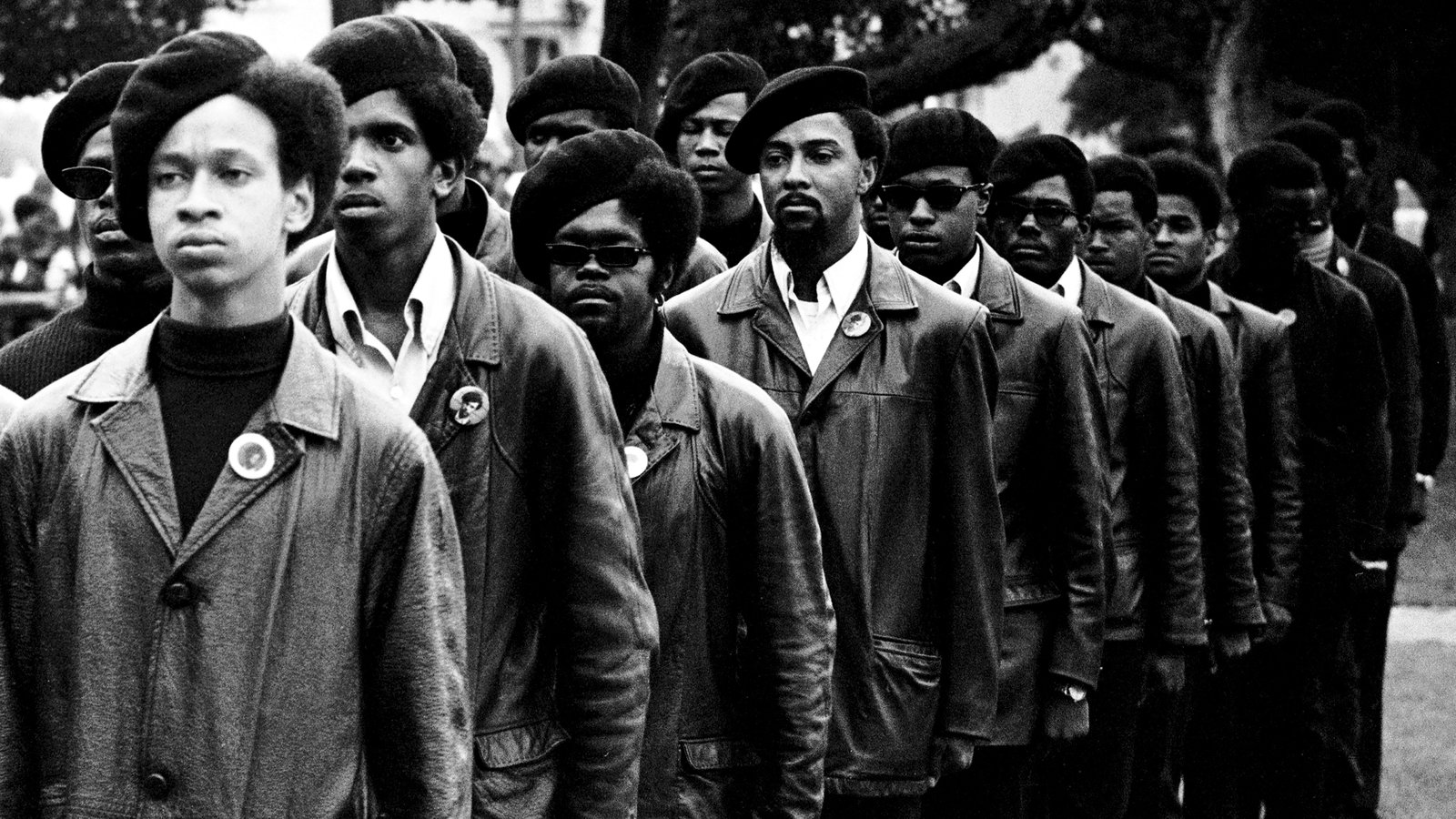The first event of our 2024/25 Discussing Decolonisation series will be guest lecture by Dr John Narayan (KCL) on the revolutionary history and theory of the Black Panther Party, followed by audience Q&A.
This event also ties in with Black History Month 2024, the theme of which is ‘Reclaiming Narratives’.
*Image shows members of the Black Panthers at a rally in 1968. (Photo credit: Stephen Shames, sourced from The New York Times).
Survival Pending Revolution: The Revolutionary Theory of the Black Panther Party
In 1971, the Black Panther Party (BPP) seemingly went through an ideological transformation. Between 1968-1970 the Party had forged strong national and international solidarity and support through a politics of revolutionary armed self-defence and a commitment to Marxist influenced anti-imperialism. Yet, in late 1970, as the sands of both national and geo-politics shifted, and as allies, both at home and abroad, became less supportive, the Panther’s found themselves on less solid ground. Black Panther leader Huey P. Newton, realising this shift in the political landscape, and the futility of attempting an armed insurgency against the state without widespread support, now steered the BPP towards the idea of ‘Survival Pending Revolution’. This saw the Panthers abandon the idea of immediate armed insurrection against the state and re-orient towards a focus on their community engagement ‘survival programs’. This paper argues that Newton’s orientation of the BPP away from armed insurrection and towards survival pending revolution was not simply a pragmatic choice of strategy, but rather based on a theorization of what he dubbed reactionary intercommunalism. Moreover, the paper suggests that the history of neo-liberal globalization can be complicated and expanded by viewing Newton as one of the first Marxist theorists of neo-liberal globalization and BPP survival programs as one of the first responses to the oncoming era of neo-liberalism in the US.
John Narayan is a Senior Lecturer in European and International Studies and an anti-racist scholar of globalization and inequality based at Kings College London (KCL). He is the author of
John Dewey: The Global Public and its Problems (2016) and co-editor of
European Cosmopolitanism: Colonial Histories and Postcolonial Societies (2016, with Gurminder Bhambra) and the
Third World Quarterly special issue (with Leon Sealey-Huggins) ‘Whatever Happened to the idea of Imperialism?’ (with Leon Sealey-Huggins, 2017). He also edited the
Race & Class special issue entitled ‘
‘New Circuits of Anti-Racism’ (2023). John’s most recent publications have focused on Black Power and the political economy and political theory generated by groups like The Black Panther Party and Black groups based in the UK. His current research centres on anti-racism, abolitionism and IPE, and the political economy of the influential anti-racist scholar Ambalanaver Sivanandan. He is Chair of the Council of the
The Institute of Race Relations, and a member of the
Race & Class Editorial Working Committee
.
Booking:
Booking for this event is available via Eventbrite. Please email Lucy Potter (l.potter@yorksj.ac.uk) and/or Dr Laura Key (l.key@yorksj.ac.uk) if you have any questions.
Please note this event takes place in person, in the Creative Centre Auditorium at YSJ’s York campus, but will be recorded and live-streamed on the day for those who are unable to join us in person.

